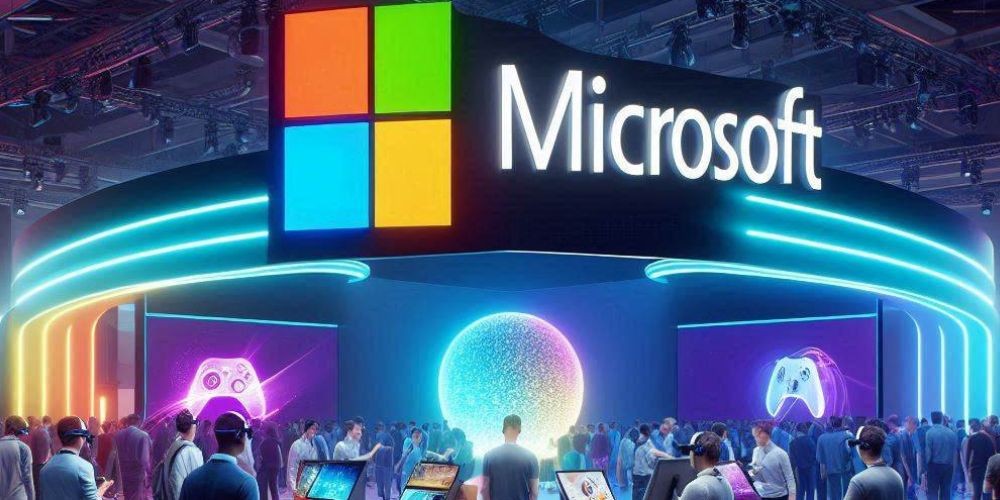Microsoft's Bold Step: Transforming Windows with In-Depth AI Integration
- 974

The anticipation around Microsoft's Build developer conference has reached a fever pitch, with the tech giant unveiling groundbreaking developments. At the core of these announcements are the new Copilot+ PCs, a pioneering lineup designed to place generative AI at the heart of the Windows 11 operating system. With features like Recall, which assists users in retrieving previously viewed content, Microsoft aims to make AI an essential part of the Windows experience, heralding a new era for personal computing.
During the conference, a significant highlight was the introduction of volumetric apps via a partnership with Meta. These applications leverage the immersive capabilities of Meta Quest headsets, allowing users to interact with 3D objects in a virtual space. A demonstration involving the manipulation of a digital 3D Xbox controller showcased the potential of this technology. Developers eager to explore this frontier can now preview the new volumetric API, setting the stage for a new breed of interactive applications.
Copilot+ PCs represent Microsoft’s vision of AI-first computing. These devices, equipped with powerful NPUs and starting at $999, promise unparalleled AI-driven experiences. With partnerships involving leading chipmakers like Qualcomm, Intel, and AMD, these PCs boast impressive battery life and advanced specifications. The collaboration with manufacturers such as Acer, Asus, Dell, HP, Lenovo, and Samsung ensures a diverse range of high-performance devices tailored to varied user needs.
Microsoft's latest Surface devices further push the envelope in terms of performance and battery life. The newly redesigned Surface Laptop, with options for a 13.8- or 15-inch display, promises up to 22 hours of battery life, cutting-edge connectivity, and a haptic feedback touchpad, positioning it as a powerhouse for productivity. Similarly, the new Surface Pro, equipped with an OLED HDR display and enhanced camera capabilities, showcases Microsoft's commitment to innovation in hardware design.
The announcement of new AI features in Windows adds another layer of excitement. Innovations like Super Resolution for photo enhancement and Recall for retrieving past activities underline the practical benefits of AI integration. Furthermore, capabilities such as live translations and real-time language dubbing emphasize the utility of AI in everyday tasks. Through tools like Copilot Studio and the Windows Copilot Runtime, Microsoft is empowering developers to create sophisticated AI-driven applications, fostering a supportive ecosystem for AI innovation.
The conference underscored Microsoft's dedication to enhancing user experience through advanced AI technologies. The introduction of AI models like Phi-3-vision and partnerships with educational platforms like Khan Academy highlights the broad potential of Microsoft’s AI endeavors. As the technology landscape evolves, Microsoft's continued commitment to AI integration puts it at the forefront of industry innovation, promising a future in which AI will play an indispensable part in personal and professional computing.